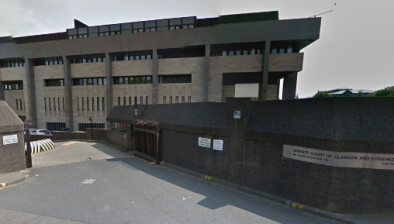Taskforce set up to help asylum seekers threatened with eviction in Glasgow
 Glasgow City Council has set up a taskforce in a bid to help up to 300 asylum seekers facing eviction in the city.
Glasgow City Council has set up a taskforce in a bid to help up to 300 asylum seekers facing eviction in the city.
It was revealed on Monday that Serco was to begin the first of six ‘lock change’ notices at accommodation which is home to asylum seekers, many of whom are fleeing war or persecution in Syria, Iraq and Afghanistan.
The residents, who the Home Office has determined will not be granted refugee status, will be given a week to leave the properties.
The city council is to work with third sector partners and legal charities to offer advocacy and support services to those affected by the planned lock changes.
Council leader Susan Aitken and chief executive Annemarie O’Donnell, who had written to home secretary Sajid Javid to ask him to intervene and prevent a “humanitarian crisis” by halting Serco’s plans, have sent the home secretary a second letter urging him to instruct Serco to pause it’s plans and give the city time to establish the taskforce and respond to this emerging crisis.
Govan Law Centre said it is working with MPs, the local authority and a number of third sector agencies and charities to identify affected asylum seekers with a view to raising legal proceedings to prevent summary evictions.
Mike Dailly, Govan Law Centre’s principal solicitor and solicitor advocate, said: “Scots common law has long since prohibited eviction without due process of law against residential occupiers. In Scotland, it is generally necessary to obtain a decree for ejection from the court as opposed to taking the law into you own hands – known as summary eviction or eviction brevi manu – which is generally a criminal offence and a civil wrong.
“Serco have announced their intention to evict asylum seekers, and their families, in Glasgow by giving a brief period of written notice that they will change the locks to a person’s home. Govan Law Centre believes this proposed course of action appears to be unlawful, and is fraught with a number of significant legal problems.”
Govan Law Centre’s summary of the legality of Serco’s evictions.
Housing and homelessness charity Shelter Scotland said it condemns Serco’s decision and is ready to support efforts to prevent the “needless and destructive action”.
Director Graeme Brown said: “Homelessness is a damaging and horrific experience for anyone to face and it is something that should never be wilfully forced on our fellow human beings, particularly those that have come to Scotland seeking a new life and support. This is a tragic and deplorable situation.
“Shelter Scotland’s campaigns team, housing advice team and housing law teams in the city stand ready to support any and all efforts from the council and local partners to prevent this needless and destructive action. We are supporting Positive Action in Housing in their work and meeting with other agencies who have a role to play. In the meantime our urgent advice to anyone affected is to seek independent legal advice.
“We call on the Home Office and Serco to immediately cease this course of action and remember that these are people’s homes and lives that are being treated with such contempt.”
Yesterday Scotland’s housing sector condemned Serco’s lock change measures and hundreds of people took to the streets of Glasgow last night to protest against the evictions.
Glasgow City Council’s urgent request asking the Home Office to reconsider is contained in the letter below.
Dear Mr Javid.
As Leader and Chief Executive of Glasgow City Council we are urgently requesting that you instruct an immediate pause on Serco’s programme of lock changes for asylum seekers in the city who have not been granted refugee status.
As has been previously stated, these actions would result in a humanitarian crisis that Glasgow is unprepared for, and which the city’s statutory and public agencies were given very little notice of or time to prepare for.
A suspension of the immediate commencement of the programme would enable Glasgow City Council to establish what advocacy and support services are required to enable those asylum seekers affected to fully explore what legal processes or other options remain open to them. In the event of a suspension taking place, we fully commit to undertaking and leading that work with relevant partners in the city.
A suspension would further allow the city council and partners in the third sector to put in place the essential frontline services which will be required following the anticipated 300-plus evictions.
In the meantime, Glasgow City Council is in the process of establishing a task force to respond to this emerging crisis. It will comprise council officers, other local government partners, third sector representatives and independent legal charities who will advise on the level of support we require to put in place for the individuals affected and the scale of the resources needed.
Glasgow, unlike other dispersal cities, receives no funding from the Home Office. It is clear that cannot continue and we would urge immediate action by the Home Office to compensate Glasgow City Council for the provision of asylum support services, on the same basis as English local authorities.
Glasgow has always been, and will continue to be, a willing and active partner in the resettlement of asylum seekers in Scotland. We firmly believe that the dispersal programme over the past twenty years has had a positive impact on our city. However the scale of the proposed evictions will have a severe, and detrimental impact on the city.
Please reconsider your decision and allow us to work constructively with the partners who exist in the city to ensure no vulnerable people fall through the cracks due to the short timescale and consequent massive impact an immediate large scale programme of evictions will have.
Yours sincerely,
Councillor Susan Aitken, Leader, Glasgow City Council
Annemarie O’Donnell, Chief Executive, Glasgow City Council.







